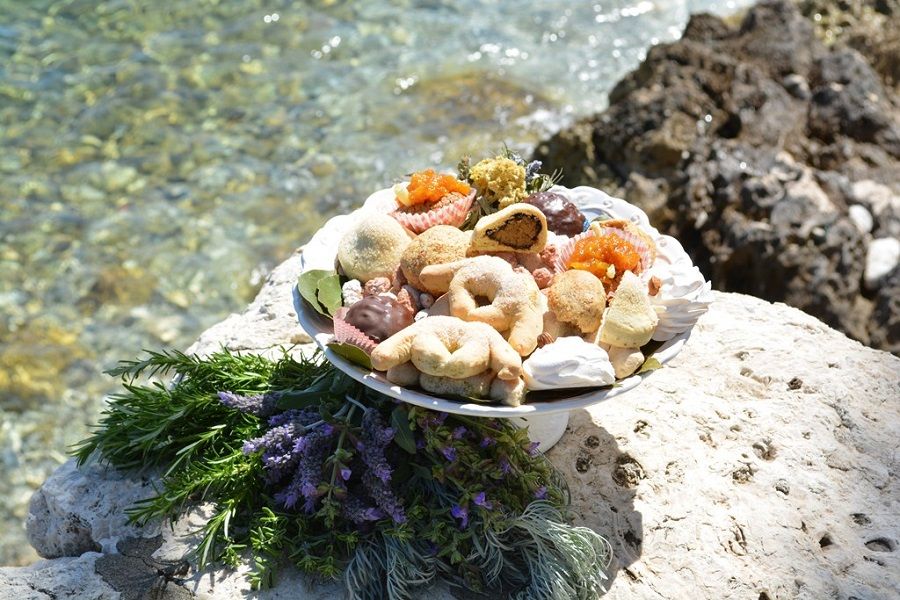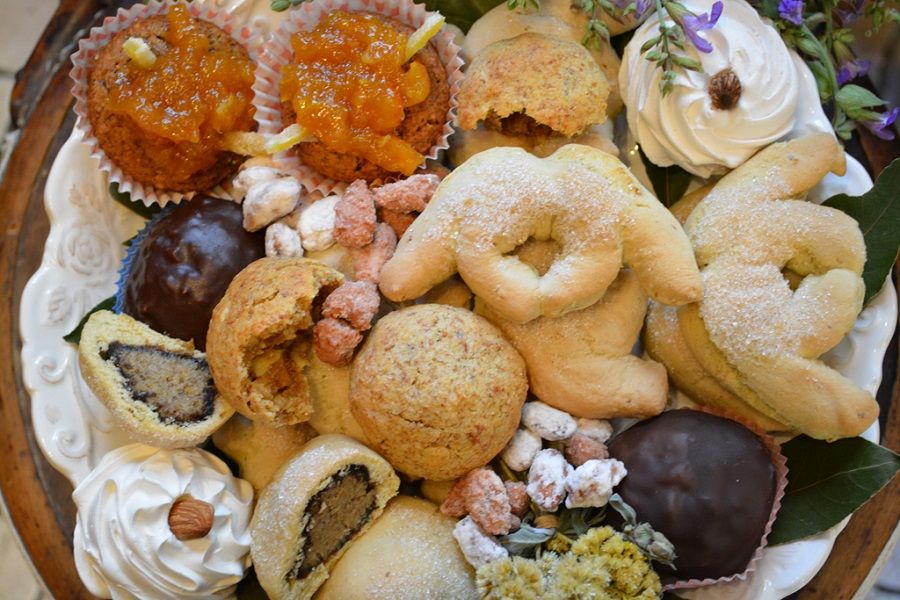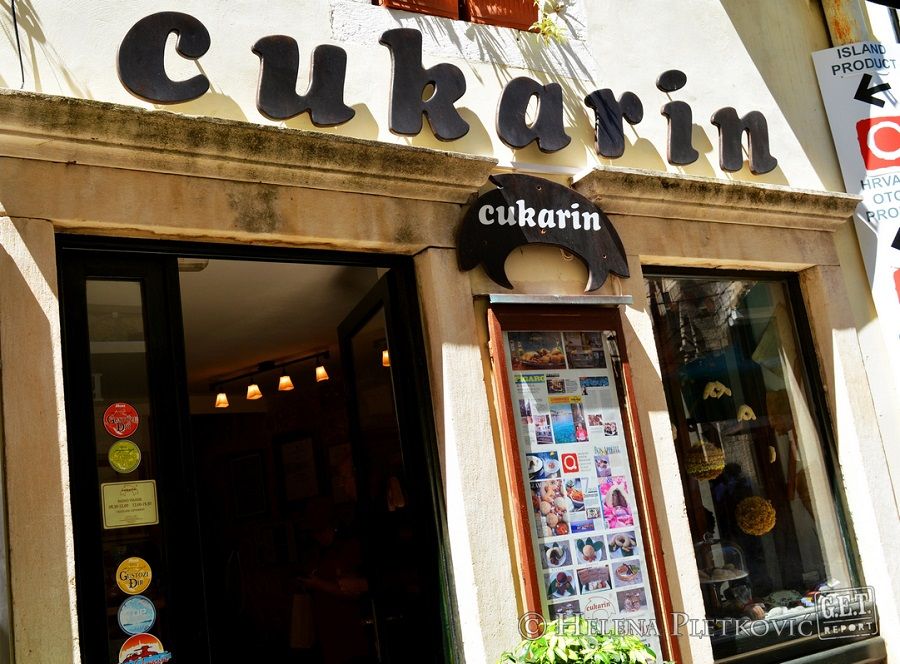One of the places in Korčula you rally shouldn't make the mistake of not visiting is Cukarin cookie shop.
It's been around since 1994, when one lady Smiljana Matijaca, in love with the tradition of cookies and pastry on the island, decided to open her own cookie shop, additionally deciding to make all of the products sold in it by hand, and to dedicate her time, efforts and expertise to traditional desserts and not spread herself thin by making numerous contemporary "modern" cakes.

So, to this day, you will only be able to find several types of sweets in Cukarin: cukarin, of course, klašun, amareta, Marko Polo bombica, harubica, two types of roasted almonds and spomilje. The names are, of course not quite helpful to understand what type of sweet each of those are, but don't feel bad about that, even people from Croatia would not have heard of those names unless they've been to Korčula.
Cukarin is a simple, non-pretentious, dry cookie, formed and baked in a characteristic shape, orange and lemon-flavoured, meant to be had with a glass of prošek - and even dipped in it in the afternoon.

Klašun is a bit more complex, while at the same time the shape is less distinct. It's a little ball of joy, made from the same dough as cukarin, but there's also a filling inside the dough, made from nuts, rose brandy and various marmalades.
Amareta looks similar to klašun, but tastes completely different. It's gluten-free, so obviously there's no dough involved, but it's a ball made from ground almonds, lemon flavour, orange peel, dried figs and honey.
Marko Polo bombica (little bomb) is a modern take on a traditional sweet, dedicated to the sea battle near Korčula during which Marko Polo was captivated. It is the only one of the desserts in Cukarin covered in chocolate.
Harubica is a cookie made from ground carob, a sweet fruit you can actually still see growing anywhere around Korčula, and orange marmalade and rind.
Then there are two types of roasted almonds, and spomilje is a meringue-type desert made from egg whites, sugar, vanilla and lemon juice.

Smiljana Matijaca still makes all of the desserts sold in her shop, and there's a good reason for that: she claims she's still the only person that knows the details of the recipes used to make the cakes, and that she's still not ready to share those with anyone (she promises she will let her daughters know what the desserts were in time). There is, however, one piece of the puzzle that Smiljana has made known, and that is the fact that she does not use commercial, modern raising agents in her dough, rather she uses the more traditional ammonium bicarbonate, which was commonly used in the homes before modern day baking powder was made available. Many baking cookbooks (especially from Scandinavian countries) may still refer to it as hartshorn or hornsalt, and compared to baking soda, it has the advantage of producing more gas for the same amount of agent, and of not leaving any taste in the finished product, as it completely decomposes into water and gaseous products that evaporate during baking. It does smell bad, during the process of baking itself, so if you ever find yourself walking around Korčula in early morning and you smell ammonia, you're probably near the Cukarin, and you need to make sure to get there as soon as they open their door and taste and buy some of the most coveted desserts in Korčula!
Smiljana Matijaca, her desserts and her shop have won all the prizes you can imagine, and have a faithful following all over the world, as people have been known to sail to Korčula only to go to Cukarin. And once she sells the cakes she's made for the day, that's it, you have to come back tomorrow a bit earlier and hope you'll manage to get some.
For more information about the wonderful selection of treasures on offer, visit the Cukarin website.


